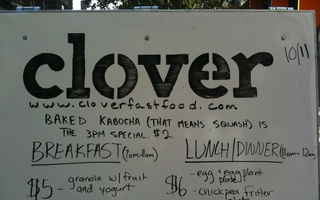{shortcode-9d1f7aeafcd2c2cbae839e051ba8761f0280cc1a}
When Jose Sahagun opened the doors of Cancun Taqueria y Mas last October, customers constantly demanded margaritas. But Sahagun was still waiting to obtain a liquor license and, without one, he worried that the new restaurant might fail before it could gain a foothold among Harvard Square businesses.
Other business owners have echoed the same story. They too experienced frustration and delays while they waited to receive a license. Often, the process of obtaining such permits can be long and arduous. Some Massachusetts liquor laws date back to the eighteenth century, and today, there is a myriad of rules surrounding the application process.
Yet despite the high costs and intricacies of applying, business owners are often willing to wait weeks, wading through multiple levels of red tape, to obtain a permit. Many say that liquor licenses often make the difference between sinking or swimming.
GETTING LICENSED
Restaurant owners who wish to obtain a new license are sometimes forced to wait months while they complete the lengthy application process instituted by the Cambridge License Commission.
For Sahagun, the owner at Cancun Taqueria, the process involved multiple hearings before the Cambridge License Commission. Cancun also had to present a petition with over 1,000 signatures of support and complete a series of exhaustive background checks before its application moved forward.
The whole process took six months total.
“It was a very long, difficult process. Every step along the way was difficult,” Sahagun said.
Elizabeth Y. Lint, executive director of the Cambridge License Commission, however, noted that the liquor license process stands apart from that of other areas of Massachusetts. According to Lint, Cambridge is one of only two Massachusetts counties that lack a fixed quota for liquor licenses.
Though there is a quota for the number of liquor stores around Harvard Square, no such limit exists for liquor licenses given to restaurants, Lint said. She said she believes that the number of eateries to successfully obtain licenses has increased in recent years, especially due to development in Kendall Square. Meanwhile, the number of Harvard Square restaurants that have received licenses has held relatively steady over the last several years, she said.
Lint estimated that about 263 establishments currently hold liquor licenses throughout Cambridge. According to Denise A. Jillson, the executive director of the Harvard Square Business Association, only 48 of those liquor licenses currently belong to restaurants in Harvard Square.
To obtain the coveted license, those restaurants had to undergo a rigorous and costly application process, with most applicants paying an initial $175 “hearing and advertising” fee to set the wheels in motion. They must also pay an additional $200 state fee.
Stores seeking to sell various types of alcohol or remain open at different times receive specific types of license—each with its own fee.
Recommended Articles
-
Bus Service Struggles for Harvard-N.Y. LineDetermined to establish a direct bus line between Harvard Square and New York City by mid-November, a transportation service company that currently runs bus routes throughout the northeast is still facing one important barrier: the city of Cambridge.
-
Tavern to Open in Former Z SquareThe 14 JFK St. space that previously housed Z Square has remained conspicuously empty for more than eight months since ...
-
Boston Questions Pizzeria LicenseStone Hearth Pizza Co. may have received approval for a beer and wine license to which it was not entitled.
-
Allston Pizzeria Wins Beer and Wine LicenseAfter a protracted and controversial process, Stone Hearth Pizza Co. received approval yesterday to proceed to the next round in its application for a beer and wine license.
-
 Hong Kong, Popular Harvard Square Joint, Approved for Longer Hours
Hong Kong, Popular Harvard Square Joint, Approved for Longer Hours -
 Clover Now Open Until Midnight
Clover Now Open Until Midnight













